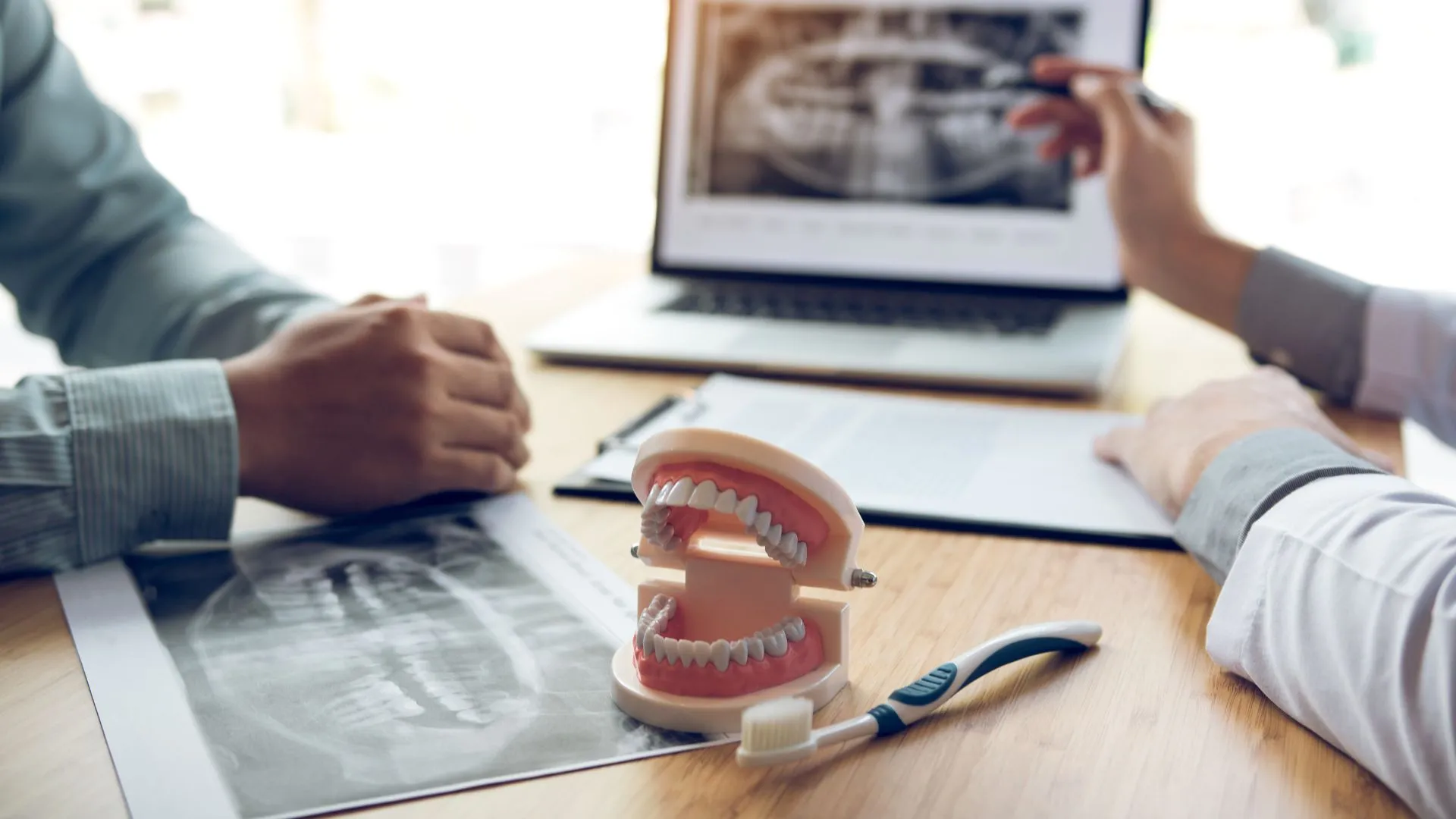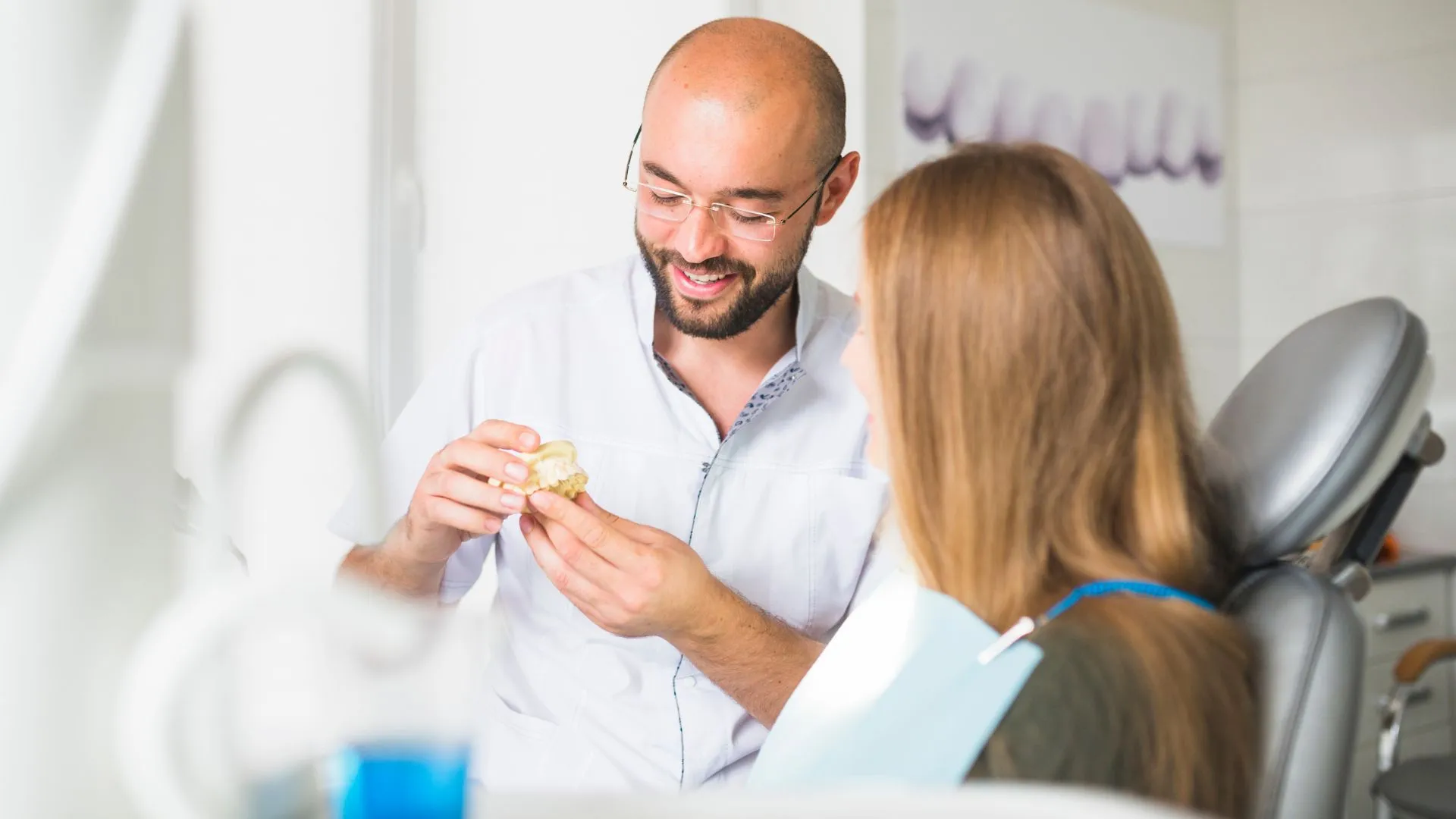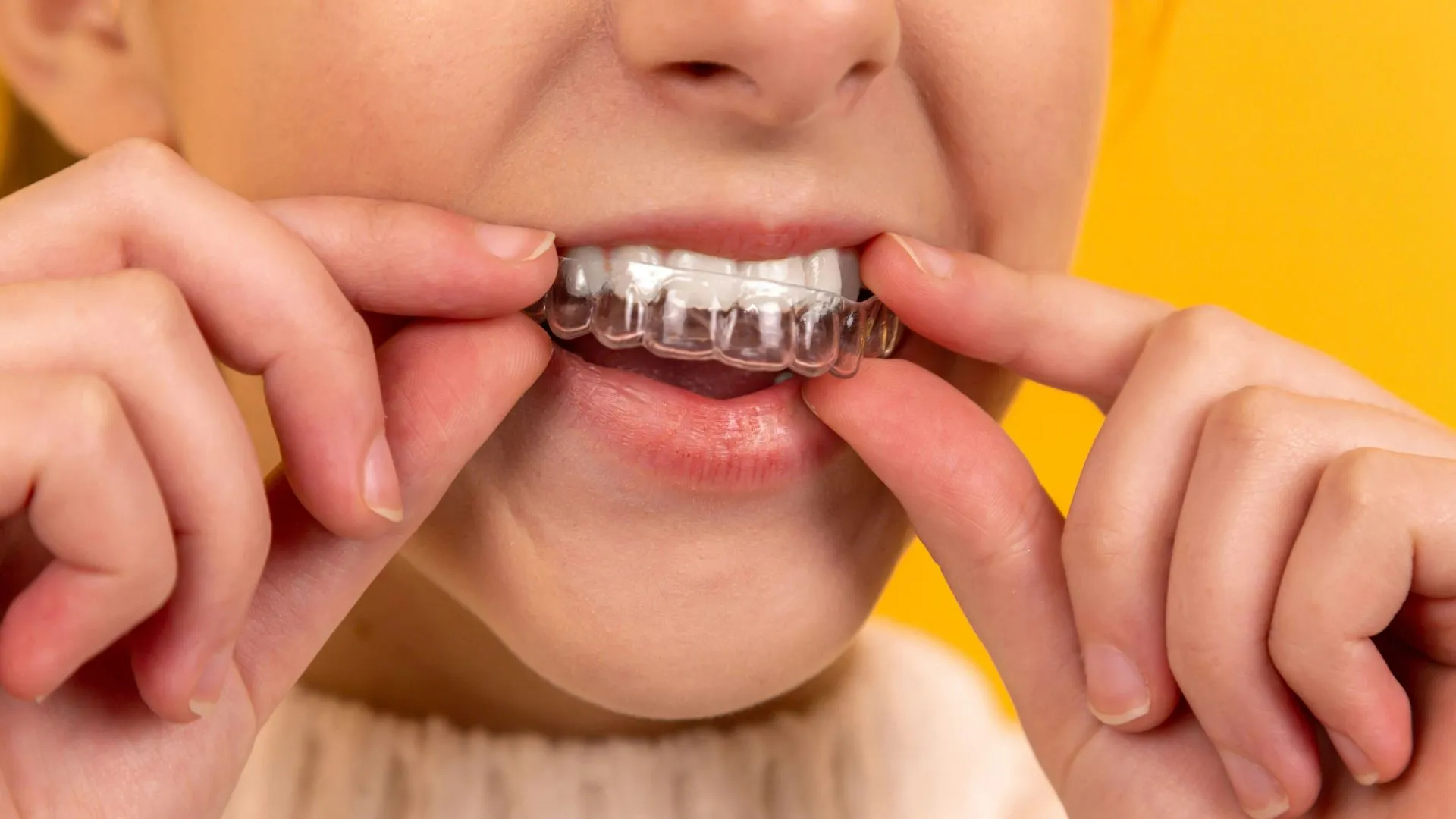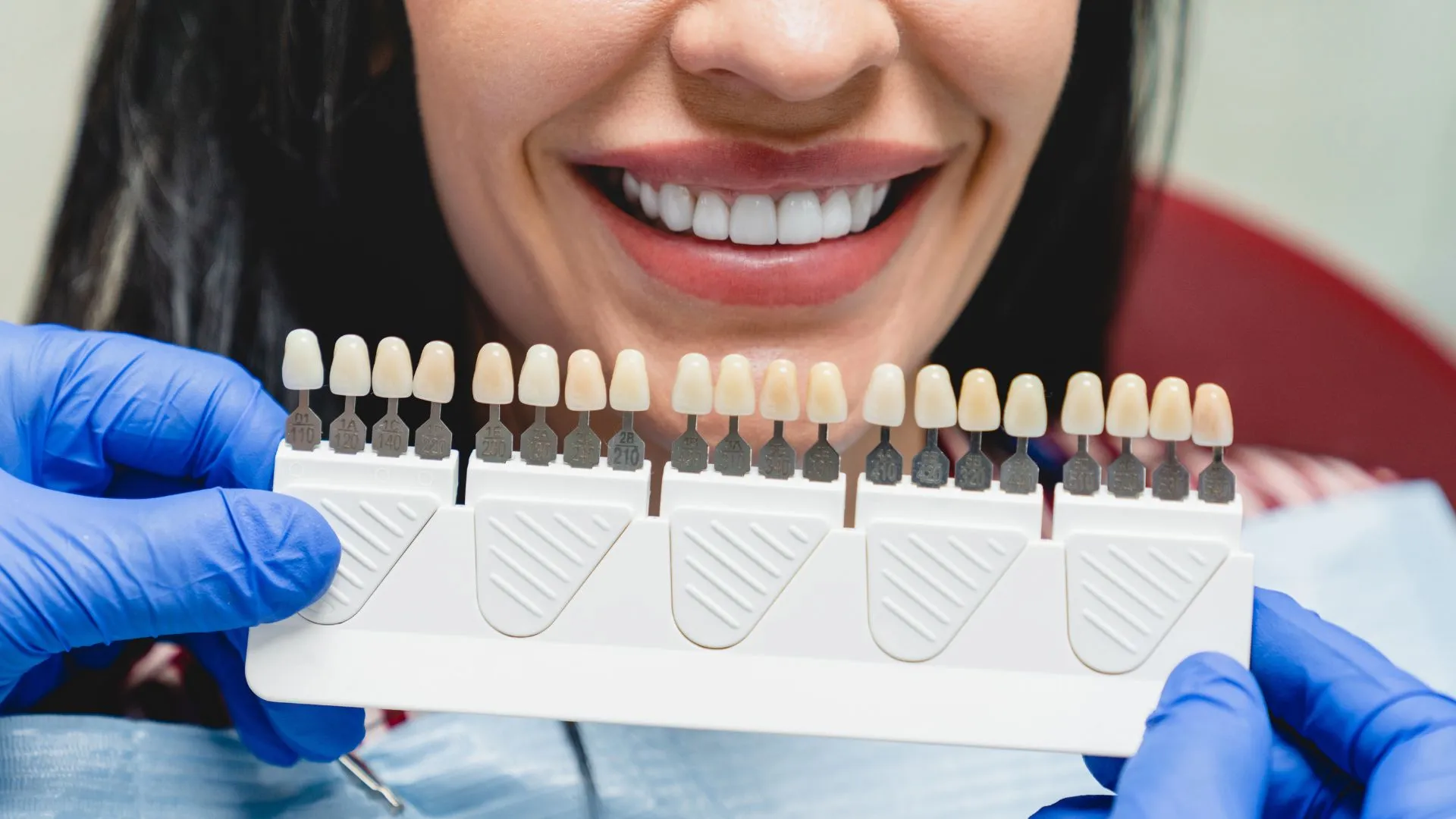Did you ever notice the letters printed after a doctor’s name on your visit to a dentist’s office? The most common ones you can find are DMD and DDS.
Did you ever notice the letters printed after a doctor’s name on your visit to a dentist’s office? The most common ones you can find are DMD and DDS.
The clinical terminology referred to by a dental professional is somewhat vague to us common people. Even their designations are sometimes beyond our general knowledge.
It’s not just DMD or DDS. You will see acronyms like FICOI or MAGD attached to some dentists’ names and dental degrees. These represent their specialized postgraduate degrees after dental school.
According to mouthhealthy.org, 80% of DDS or DMS dentists work as general practitioners, while 20% opt for one of the nine dental specialty areas.
As a patient, if you don’t know what’s the job of an orthodontist and a prosthodontist, you may end up in an orthodontist’s office with a missing tooth.
22% of US adults avoid visiting a dentist because of some sort of dental phobia. A fact sheet by ADHA about consumer habits and trends mentioned that over 95% of US adults feel more comfortable being treated by a dental hygienist than a dentist.
There could be multiple reasons behind such anxiety. But when it comes to judging your dentist’s merit or qualification, we can guide you through that.
So, what are the differences between a DDS and a DMD degree? Or are they alike? Let’s find out.

DDS vs. DMD: Is there a difference?
Here’s the real scoop, there is practically no difference between these two titles other than that one letter.
What’s a DDS degree? Well, it is an acronym for Doctor of Dental Surgery. Lucy Hobbs Taylor was the first American woman dentist with a DDS degree from Ohio College of Dental Surgery.
On the other hand, DMD stands for Doctor of Dental Medicine or Doctor of Medicine in Dentistry.
American Dental Association has affirmed that both degrees are functionally equivalent, other than the difference in their titles.
The course work and curriculums remain unchanged in both DDS and DMD, as set by the Commission on Dental Accreditation. It’s just that different medical schools name the same degree program differently.
Let’s paint a more vivid picture for you. A dentist with a DDS degree is equally trained to practice general dentistry as a dentist with a DDM degree. They are both certified in dental medicine and can be appointed on the same post. Both DDS and DMS students go through four years of undergraduate school, followed by a four-year-long doctoral degree program.
It all comes down to the university and their traditional way of choosing the title of a degree.
Why the distinction if they’re identical?
The difference between DDS and DMD originated with Harvard Dental School in 1867. Before this, the only standard dentistry degree was known as DDS. Even today, DDS is the more widely recognized dental degree.
As per Harvard’s age-old tradition, they favor a Latin name for all the degree titles. But the direct translation of Doctor of Dental Surgery in Latin came out as Chirurgiae Dentium Doctoris or, in short, CDD. CDD didn’t seem very appealing to Harvard standards. So the school crafted a new designation called DMD, which stands for Dentariae Medicinae Doctor in Latin.
Since then, many medical schools have imitated this degree title, leading to the confusion between DDS and DMD.
Can they choose one title over the other?
It’s not about which title to choose. Whether someone is going to be DMD or DDS solely depends on their choice of medical school. Depending on the country and the university they get through, their undergraduate degree’s title and duration may vary. Both DMD and DDS doctors have the same knowledge and qualification level at the end of the day.
Services offered by a DDS or DMD
Be it a DDS or DMD, general dentists are not just in charge of your oral care. In a thorough dental checkup, they also examine the patient’s head and neck muscles and nervous systems, tongue, and salivary glands.
Some of the mandatory duties and services offered by a DDS or DMD dentist are:
- Advocate and spread awareness about oral health
- Study x-rays and other diagnostic tests to analyze a patient’s condition
- Diagnose and treat various oral diseases
- Conduct and monitor anesthetics safely
- Perform oral surgeries
- Operate procedures like taking dental impressions, filling cavities, tooth extractions, crowning, teeth cleaning
- Create personalized treatment plans for individual patients
- Track the growth and development of teeth and jaw structure to treat problems like overbite and underbite
Education beyond DMD or DDS
After eight years of graduation and dental school, dental students appear on a national level written exam followed by a state-based licensing exam to be qualified for general dentistry practice. However, to keep up the superior quality of their practice, many dentists pursue specialized postgraduate programs. Here’s a list of dental specialty certificate programs:
- Orthodontics (2-3 years) – Diagnosis and correction of malocclusion and facial irregularities.
- Prosthodontics (3 years) – Restoration and maintenance of missing teeth or oral and maxillofacial tissues using artificial devices.
- Periodontics (3 years) – Diagnosis and treatment of inflammatory diseases of the gum and the supporting bone structure around teeth.
- Endodontics (2-3 years) – Prevention and treatment of dental pulp diseases, tooth pain, and root canal procedure performance.
- Pediatric Dentistry (2-3 years) – Maintenance of infants and children’s oral health care issues.
- Oral and Maxillofacial Surgery (4-8 years) – Surgical treatment for reconstruction of the face, facial trauma, injuries of mouth, oral and maxillofacial area, and cosmetic surgical procedures.
Conclusion
‘Is DDS better than DMD?’ We hope we finally dragged you out of this dilemma. Now you should not face problems in accessing a dentist’s proficiency from these two designations. Whether your dental professional is a DDS or DMD, be sure your oral care is in evenly good hands.



